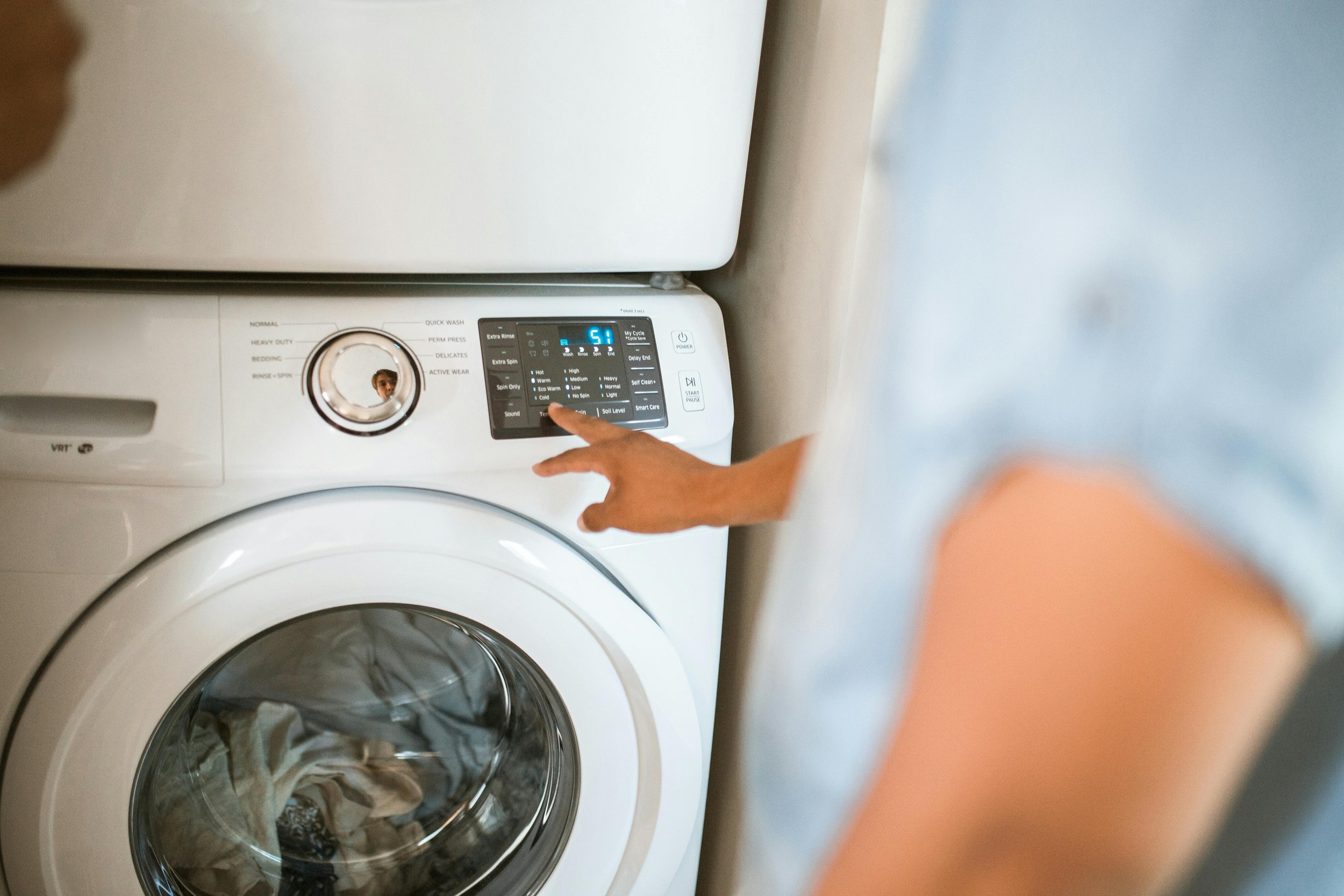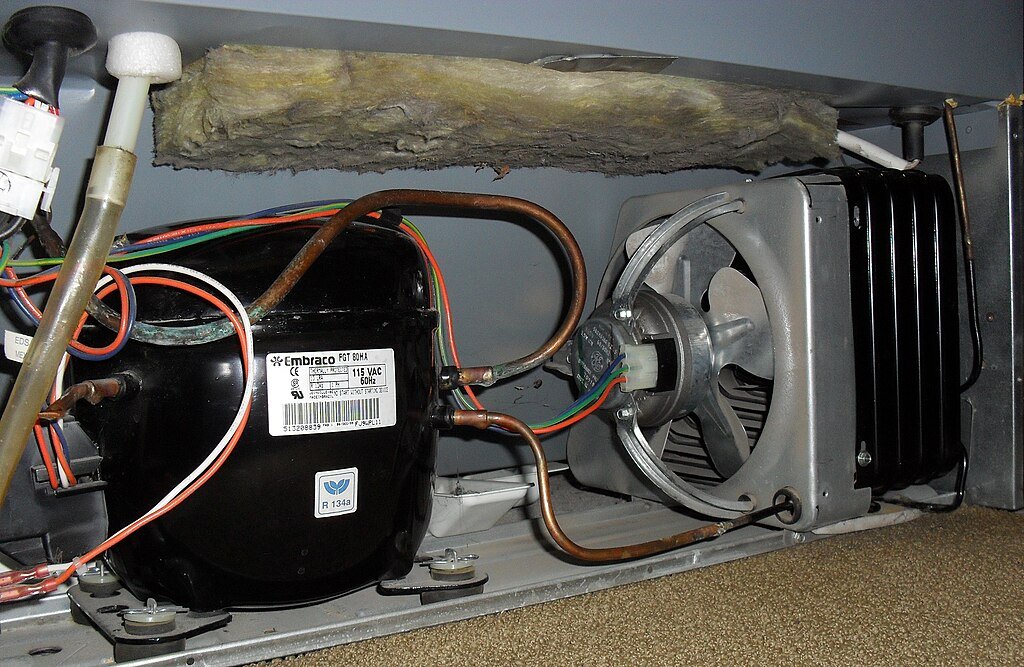Get the most out of your home’s appliances with this handy room-by-room breakdown.
When you're handed the keys to your first home, there's a lot to figure out. If you're lucky, the previous owner or your realtor leaves behind a neat binder detailing everything that’s been done to the house during their tenure. But most of us aren't that lucky. Instead, we’re left guessing—when was the last pest treatment? Has the dishwasher ever been cleaned? Were the appliances repaired or just limping along?
Keeping your appliances happy and healthy is the key to making them last. This also means knowing how long your appliances should be kept, as well as how long you should reasonably expect them to work. This week, we're taking a look at all of the appliances in your home in a room-by-room breakdown. You'll get a better idea of the average lifespan you should expect from your appliances, along with some tips and tricks.
Owning a home for the first time comes with a steep learning curve. You suddenly become the plumber, the repair technician, and the budget analyst all in one. No more calling the landlord when something breaks—now it’s up to you to spot problems before they turn into expensive repairs.
Whole Home Systems
There are four major systems that care for your entire home. Each of these varies in terms of how long they last, but all have the same thing in common: they are meant for the comfort of your home.
These aren’t the glamorous purchases you imagined when you dreamed about homeownership, but knowing how long your systems last can save you thousands. Most first-time homeowners are surprised to learn just how much routine care these systems need to stay functional.
Thermostats
Your thermostats can last up to 35 years. Thermostats can last up to 35 years, though we usually upgrade them long before then to keep up with changing technology. So long as you replace the batteries regularly and keep them updated, they should last you for a long time.
Air Conditioners
Second, we have our air conditioners. These come in three different varieties: your whole-house HVAC systems, wall or window units, and then portable ones. Portable units will vary between 5–10 years because they're often built to be lighter and thus aren't up to rigorous use. Wall and window units will typically last for 10 years, if cared for well, with consistent filter cleaning. Finally, your HVAC units will last between 15 and 20 years, especially if cared for regularly and maintained.
Furnaces & Boilers
Next up is your furnace and your boiler. These will often last about the same amount of time, so we've put them together. On average, these last the second longest in a home, second only to the thermostats. With electric units, they last the least amount of time, clocking in at roughly 15 years. Gas units will range from 18 to 20 years, thanks to being of simpler design. And finally, units that run on oil will last the longest, at 21 years. With regular maintenance and annual checkups, you can help your furnace and boiler reach the upper end of their lifespan.
Water Heaters
Finally, for our whole home section at least, we have water heaters. This time electric heaters will actually last longer at 11 years, while gas heaters typically only last for 10. The one that blows both of them out of the water though is tankless water heaters. If you haven't heard of these, they work on an ‘as needed’ basis only heating water when you use it. Because of that, they can last for twenty years or more!
If this is your first home, there’s a good chance no one told you that your water heater could flood your garage or closet if it fails. It’s not just about hot showers—it’s about knowing when to flush the tank or check for leaks before they become emergencies.
🧺 Laundry Room Appliances
Let's move on to our next area, the laundry room. As we talked about in the past, both your washer and your dryer need regular cleaning and maintenance in order to keep them in peak working condition. If you're just moving into your home, you'll want to check both appliances thoroughly, inspecting seals, vents, and filters to make sure they were well-maintained.
One thing no one tells you as a new homeowner: your appliances aren’t “set it and forget it.” Regular maintenance—yes, even cleaning your washer—can make all the difference between an appliance that lasts five years or fifteen.
Washing Machines
Your washing machine will typically last around a decade, give or take a year. The biggest things to remember are to keep the seals cleaned, and to keep an eye on the filters. If the seals get damaged, you'll be dealing with water getting everywhere. If the issue is the filters getting clogged, then your washer will struggle to work.
Dryers
Moving on to the dryer, this is another where you need to pay close attention to your filters. As usual though, we recommend cleaning the filter after every use, just so that it stays a habit. There's also the dryer vent on the back, which needs to be cleaned once a year. If you do both of these things, not only will this reduce fire risk, but you should also expect your dryer to last roughly 13 years.
👩🍳 Kitchen Appliances
Refrigerators
Your refrigerator is one of the hardest-working appliances in your home. It is constantly running, working to keep your food at 35 degrees. That means that you need it to keep running for as long as possible. Fortunately, your refrigerator, when treated right, will typically last you between 11 and 14 years. The best way to do this is to make sure you keep things open rather than packed completely full, and to vacuum the coils twice a year.
If you’ve never owned a fridge before, you might not realize it needs regular care. Cleaning the coils and giving it breathing space aren’t just nice-to-haves—they keep your fridge from overworking and dying before its time.
Freezers
For freezers that are attached to a refrigerator, the lifespan will naturally be the same. What about the ones that are on their own though? Freestanding freezers, chest freezers and the one you keep out in the garage just for storing extra meat? For those you want to defrost as needed and make sure that the vents are kept clear. If you do that, your freezer should live for around 11 years.
Dishwashers
If you go to your dishwasher right now, you should find in the bottom of it a filter that you can twist out and remove. While it varies depending on the model, it is almost always there. Why? Because that catches the food debris that gets rinsed off your plate. Unlike old dishwashers that would catch and grind up the food, these just catch the food. That means that caring for your dishwasher means cleaning out the filter monthly. Additionally, you’ll want to run it regularly so that you can prevent failure of the door seal. Doing these things will make your dishwasher last between 9–12 years easily.
Ranges & Stovetops
Ranges and stovetops are coming in three major varieties right now: electric and gas, with the new contender being induction. Induction stoves are still relatively new, so their average lifespan isn’t well-established yet. Electric stoves will last between 12 and 13 years while gas stoves will last between 14 and 15. The biggest difference is that electric stoves have more bits and pieces within them that can go wrong sooner.
As you get settled into your new home, we hope that you'll keep in mind the importance of regular maintenance. Whether you do it yourself or call us, taking care of your appliances means they'll take care of you.
Being a homeowner means learning as you go—and that’s okay. Whether you’re figuring out where your furnace filter is or learning the hard way that dishwashers have filters, every small win makes you a more confident homeowner. And when in doubt, our team is always just a call away.
Reminder: if an appliance is acting up before its ‘end of life’ time period, it could be worth repairing it now rather than replacing it outright.
That’s where our team at Appliance Rescue Service comes in. Whether you’re setting up your new home or fixing a long-standing issue, we’re here to help. Together we'll find a time and date that works for your schedule to send out our technicians and get your home running smoothly again.
Website
Call:(214) 599-0055



